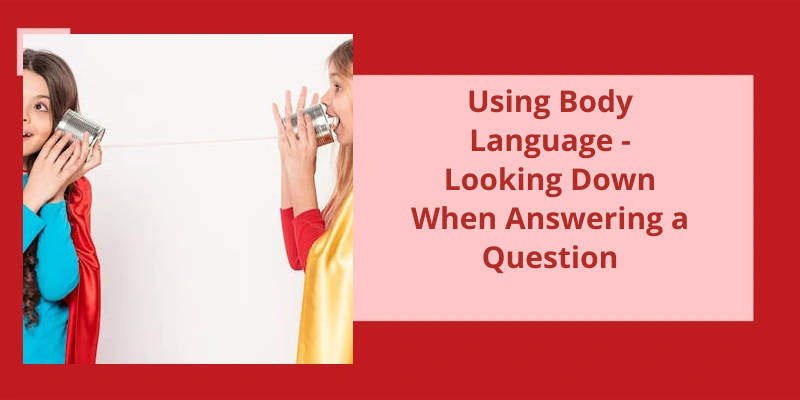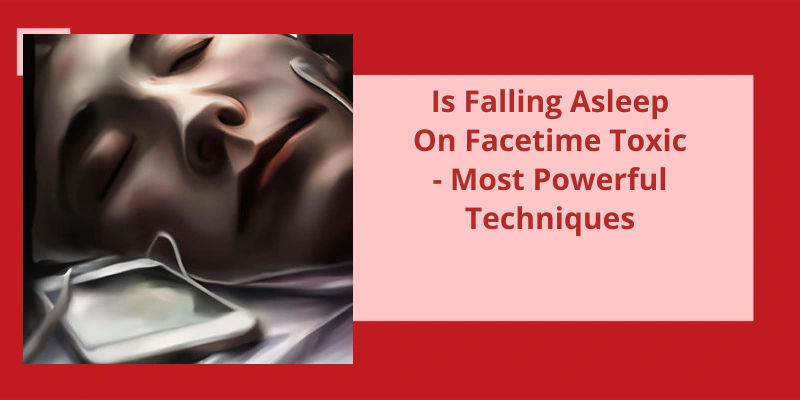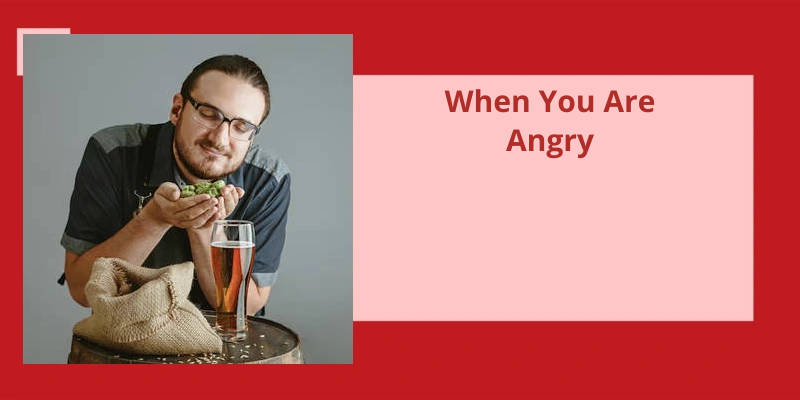Body language plays a crucial role in our daily interactions, often revealing more about our true thoughts and feelings than words alone. One intriguing aspect of nonverbal communication is the act of looking down when answering a question. This simple gesture can convey a myriad of messages, and it’s significance can vary depending on the context and the individuals involved. In some cases, looking down may indicate submission or shyness, suggesting that the person perceives their conversational partner as more powerful or authoritative. This downward gaze can also be a telltale sign of nervousness or hesitation, as the individual attempts to avoid direct eye contact perhaps due to a lack of confidence or uncertainty about their response. Whether it stems from feelings of inferiority, self-doubt, or a desire to distance oneself from the conversation, looking down when answering a question provides valuable insights into the speaker's emotional state and interpersonal dynamics. By understanding and interpreting this subtle yet significant nonverbal cue, we can gain a deeper understanding of human behavior and enhance our communication skills by responding appropriately to the unspoken messages conveyed through body language.
When You Ask Someone a Question and They Look Down?
When you ask someone a question and they look down, it can be a very telling body language cue. In many cases, looking down while answering a question signifies a certain level of submission or shyness toward the person they’re speaking to. It could indicate that they view the other person as more powerful or authoritative, and therefore, feel the need to display deference through their body language.
Furthermore, looking down can also be a sign of nervousness or hesitation. When someone is unsure about their response or feels anxious about participating in the conversation, they may avoid making eye contact by looking down. This may be a way to protect themselves from potential judgement or criticism, as eye contact is often seen as an invitation to further engage in the discussion.
While it may signify submission or shyness in some situations, it may indicate a lack of confidence or uncertainty in others. Therefore, it’s crucial to consider other nonverbal cues and the overall context when interpreting someones body language.
Overall, looking down when answering a question can provide valuable insights into a persons emotional state and their perception of the conversation.
The Cultural and Social Implications of Looking Down While Answering a Question.
When it comes to body language, looking down while answering a question can have cultural and social implications. In many cultures and social settings, avoiding direct eye contact by looking down while answering a question can indicate submission, lack of confidence, or even deceit. It may be perceived as a sign of disrespect or a lack of interest in the conversation.
However, it’s important to note that the interpretation of body language varies across cultures. In some cultures, looking down while answering a question may be seen as a sign of respect or humility. It can also be a way to gather one’s thoughts or show that the person is listening attentively.
Understanding the cultural and social implications of body language is crucial to effective communication. It’s advisable to be mindful of the specific cultural context and norms when interpreting someone’s body language, including their tendency to look down while answering a question.
However, it’s important to note that looking down can have various interpretations depending on the context and individual differences. Understanding body language goes beyond a single gesture, as it encompasses multiple factors such as facial expressions, posture, and overall communication patterns. Let’s explore some of the possible meanings behind looking down and it’s implications in different situations.
What Does Looking Down Mean in Body Language?
When it comes to body language, looking down can reveal a lot about a persons emotional state. If someone frequently looks down at the floor, chances are they’re shy or timid. It’s like they’re trying to hide away from social interactions and avoid making eye contact. This behavior is often associated with a lack of confidence and a fear of judgment from others.
Moreover, looking downwards can be a telltale sign that someone is upset or trying to hide something emotional. When faced with uncomfortable or distressing situations, people tend to avert their gaze towards the ground. It’s as if looking down helps them disconnect from the situation or avoid confronting their own emotions. This behavior suggests that the person is feeling unpleasant emotions and wants to keep them hidden from others.
Source: Body Language – Eyes – Writers Write
In addition to eye contact and body language, the act of looking away before answering a question can be another telling sign of someone’s honesty or deceitfulness. By diverting their gaze momentarily, individuals who’re telling the truth can gather their thoughts and focus on providing an accurate response. On the other hand, liars may purposely maintain eye contact, trying to give the impression of honesty while suppressing any anxiety or self-consciousness. The subtleties of these nonverbal cues can offer valuable insights into the authenticity of a person’s words.
What Does It Mean When Someone Looks Away Before Answering a Question?
When analyzing body language, one common behavior that people often interpret is when someone looks away before answering a question. This action can hold various meanings, depending on the individual and context. In some cases, looking away can indicate that the person is contemplating their response and trying to gather their thoughts. People who’re telling the truth may find it helpful to momentarily divert their gaze as it aids concentration and allows them to gather their response coherently. By momentarily looking away, they can ensure that their answer is more accurate and truthful.
On the other hand, individuals who engage in deception may behave differently. Due to heightened self-awareness about their own eye contact and the fear of coming across as dishonest, they may avoid looking away before answering a question. Liars are often more conscious of maintaining eye contact as they aim to establish trust and create the illusion of honesty. Consequently, they may try to appear more confident and maintain unwavering eye contact to convince others of their veracity.
Nevertheless, it’s important to note that the interpretation of body language shouldn’t be solely relied upon as a foolproof means of detecting lies. Various factors, such as individual differences and cultural norms, can influence an individuals eye contact patterns. While avoiding eye contact can be an indicator of deception, it isn’t a definitive proof, and other cues should be taken into consideration to better understand the situation.
Additionally, it’s crucial to consider the broader context and individual behavior patterns when analyzing body language. Each person has their unique communication style, and their body language should be evaluated in conjunction with other verbal and nonverbal cues to obtain a more accurate understanding of their thoughts and intentions.
Looking away before answering a question can imply different things depending on the person and circumstances. However, it’s crucial to exercise caution when interpreting body language cues, as they can vary based on factors such as individual differences and cultural norms.
The Potential Impact of Anxiety or Nervousness on Eye Contact and Looking Away
- Anxiety or nervousness can cause individuals to avoid eye contact or frequently look away.
- Eye contact is an important non-verbal cue in communication.
- People with anxiety may find it challenging to maintain eye contact due to their heightened self-consciousness.
- Feeling anxious can lead to a variety of physical symptoms, including avoiding direct eye contact.
- This behavior may be a coping mechanism for individuals who feel overwhelmed in social interactions.
- Anxiety-induced avoidance of eye contact can impact personal and professional relationships.
- Understanding and addressing the underlying anxiety can help individuals improve their ability to maintain eye contact and engage in meaningful interactions.
- Psychological techniques such as cognitive-behavioral therapy and relaxation exercises can be beneficial in managing anxiety-related eye contact issues.
- Seeking support from mental health professionals can provide individuals with effective strategies to overcome anxiety and improve their overall well-being.
Conclusion
Whether it signifies submission, shyness, nervousness, or hesitation, this body language cue is often indicative of a person's unease or lack of confidence in the situation. By avoiding eye contact, individuals may be attempting to shield themselves from the potential judgment or scrutiny of those they view as more powerful. It’s essential to recognize and interpret this nonverbal communication to better understand the speaker's true thoughts and feelings.






